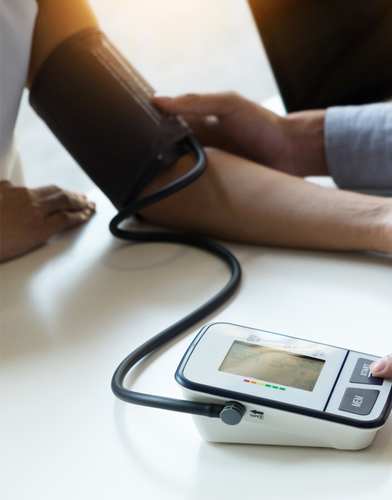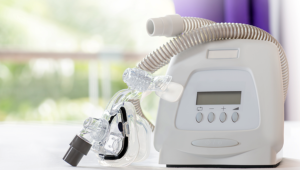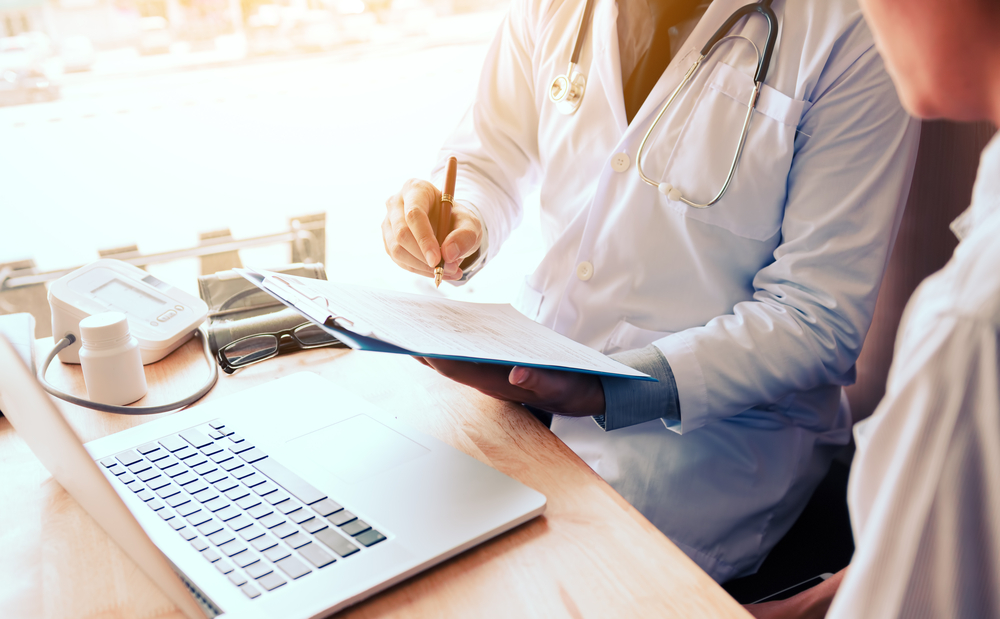Sleep apnea can interfere with your quality of life on many levels. While waking up…

Sleep Apnea and High Blood Pressure

Although sleep apnea is one of the most common sleep disorders, far too many people don’t understand what it truly means or how dangerous sleep apnea can be. Current statistics indicate that as many as one out of every 15 people suffer from obstructive sleep apnea (OSA), the most common form of the condition. Unfortunately, as many as 80 percent of those afflicted with obstructive sleep apnea don’t even know they have a sleep disorder! An individual with sleep apnea can stop breathing up to 30 times per hour! Additionally, sleep apnea can adversely affect other body systems, including the circulatory system and the heart. Read below to learn more about the relationship between sleep apnea and high blood pressure, a dangerous and under-publicized side effect of sleep apnea.
The Importance of Quality Sleep
According to the National Heart, Lung and Blood Institute (NHLBI), the critical importance of getting high-quality nightly rest cannot be understated.
Yet high-quality sleep is something undiagnosed sleep apnea sufferers never get. Someone with sleep apnea may wake 5 to thirty times every hour but have no idea. Upon waking, they may blame their fatigue on their bladder, partner, hunger or thirst, stress or any number of reasons. Meanwhile, night after night, their body remains unable to repair their heart, blood vessels, tissues and cells. When each new day begins, thinking becomes less clear, reaction times slow, emotions seesaw and, often times, body weight can fluctuate. But of most concern is this: medical researchers now realize there is a direct straight-line correlation between sleep apnea and high blood pressure. Not only can sleep apnea (whether undiagnosed or poorly managed) cause high blood pressure, but high blood pressure left untreated can also bring about the onset of sleep apnea!
 Where Sleep Apnea and High Blood Pressure Intersect
Where Sleep Apnea and High Blood Pressure Intersect
Research indicates that anywhere from 30 to 50 percent of people diagnosed with high blood pressure also have sleep apnea. Those at highest risk of developing sleep apnea are patients whose high blood pressure has failed to respond favorably to treatment. The same holds true for patients whose sleep apnea is either undiagnosed or has been poorly managed to date. As the body endures night after night of inability to repair major and minor damage to the heart, blood vessels, tissues, cells and circulatory system, blood pressure begins to creep upwards.
As WebMD reports, a new research study showed a strong positive correlation between effective sleep apnea treatment and lower blood pressure. In this study, patient participants were on several medications to control blood pressure and were also struggling with sleep apnea. Patients were fitted with a CPAP (continuous positive airway pressure) device – a standard treatment for sleep apnea – and prescribed nightly use. Patient participants continued nightly use of the CPAP machine for 12 consecutive weeks. At the end of the 12 week period, participants experienced an overall drop in blood pressure during the night time hours. They also experienced a lower overall diastolic (resting) blood pressure.
Here, it is important to remember that these patient participants had resistant-type high blood pressure, which was not responding well to traditional treatments designed to lower high blood pressure. When use of the CPAP machine was added to their treatment regimen, it afforded a much higher quality of sleep, which had the happy side effect of reducing blood pressure as well.
Other Dangerous Health Conditions Linked to Sleep Apnea
Sleep apnea is a critically dangerous disorder in its own right. According to the University of Wisconsin Madison School of Medicine and Public Health, individuals whose severe sleep apnea went undiagnosed had 3 to 5 times the mortality rates of individuals who did not have sleep apnea. This study, called the Wisconsin Sleep Cohort Study, has been underway for 18 years. To date, it has highlighted links between sleep apnea and hypertension (high blood pressure), stroke, depression and cardiovascular (heart) disease. Here again, when study participants were treated with a personalized CPAP device and used it nightly, the risk of death dropped dramatically.
 How the CPAP Device Works to Treat Sleep Apnea
How the CPAP Device Works to Treat Sleep Apnea
The link between sleep apnea and high blood pressure is one of inadequate quality of sleep. The CPAP device is designed specifically to enhance duration and quality of sleep by keeping airways open. This supports normalized blood pressure because it also stabilizes blood oxygen levels. There are no dangerous spikes and falls because the individual is breathing regularly and evenly all night long. Thus, over time and with continuous use of the CPAP machine, it may be possible to treat high blood pressure without the use of additional medications.
Other Ways to Support Restful Sleep and Promote Normal Blood Pressure
While this is not always the case, the American Heart Association reports that individuals diagnosed with obstructive sleep apnea often also struggle with their weight. Issues of overweight or obesity can worsen both sleep apnea and high blood pressure. As well, ongoing battles to control blood pressure and get restful sleep can cause additional weight gain. Use of a CPAP machine can become a frontline defense to stabilize blood pressure and provide restful sleep. From here, the individual will have more energy to pursue additional means of improving their health. Recommended additional measures include weight loss, limiting alcohol and caffeine use, regular exercise, not smoking or vaping, pursuing stress management techniques and enjoying a healthy diet with plenty of hydration.
When individuals are made aware of the dangerous connection between sleep apnea and other known health conditions such as high blood pressure, stroke and cardiovascular disease, life-saving intervention becomes possible. This disorder is extraordinarily common and a serious health concern. Consult your doctor if you feel like your quality of sleep may be diminishing from sleep apnea. The use of a CPAP machine can drastically increase sleep quality, as well as overall health, so choose Home Sleep Delivered for convenient at-home sleep testing, quality supplies and resupplies to keep you sleeping sound.
Please also see our Symptoms and Risks page for more information or take our online Sleepiness Exam.





